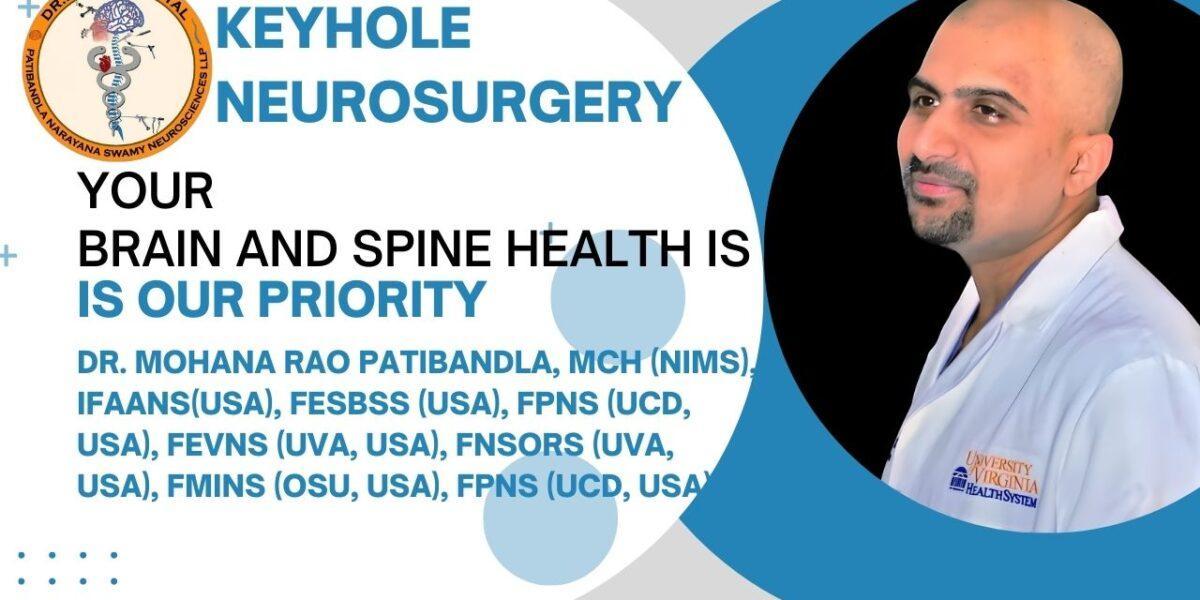The Impact of Sleep Deprivation on Brain Health: How Lack of Sleep Affects Cognitive Function
The Importance of Sleep for Brain Health
Sleep is a complex biological process that plays a vital role in maintaining the health and function of the brain. During sleep, the brain undergoes essential restorative processes crucial for overall cognitive function and emotional well-being. Let’s delve deeper into the significance of sleep for brain health:
Memory Consolidation:
The brain processes and consolidates memories from our waking hours while we sleep. This process, known as memory consolidation, helps form and retain memories, enabling us to learn and have information effectively. Lack of sufficient sleep can interfere with this process, leading to difficulties remembering and learning new information.
Toxin Clearance:
The brain has its waste clearance system, known as the glymphatic system, which operates during sleep. This system flushes out harmful toxins and waste products that accumulate in the brain during wakefulness. Proper sleep is crucial for efficiently removing these toxins, and chronic sleep deprivation may impede this process, potentially increasing the risk of neurodegenerative diseases.
Emotional Regulation:
Sleep plays a crucial role in emotional regulation and stability. Adequate sleep helps regulate mood and reduces the reactivity of emotional centers in the brain. When we don’t get enough sleep, we may experience increased irritability, mood swings, and difficulty managing stress and emotions.
Cognitive Function:
Lack of sleep can significantly impact cognitive functions, such as attention, concentration, and problem-solving. Sleep deprivation impairs the brain’s ability to focus and sustain attention, leading to reduced productivity and increased errors in daily tasks.
Decision-Making:
Sleep deprivation can hinder the brain’s ability to make sound decisions. Studies have shown that sleep-deprived individuals tend to be more impulsive and are more likely to make risky choices.
Neuroplasticity:
Sleep is essential for brain plasticity, which refers to the brain’s ability to adapt and reorganize itself based on experiences and learning. A well-rested brain demonstrates improved neuroplasticity, facilitating better learning and cognitive flexibility.
Hormonal Regulation:
During sleep, the brain regulates various hormones, including those that control appetite and metabolism. Sleep deprivation can disrupt the balance of these hormones, leading to increased hunger, potential weight gain, and metabolic disturbances.
In conclusion, adequate sleep is not just essential for physical rest but is crucial for brain health and overall well-being. It impacts cognitive function, emotional regulation, memory consolidation, and toxin clearance in the brain. Dr. Rao, the best neurosurgeon in India, understands the significance of quality sleep in maintaining brain health and offers comprehensive care at Dr. Rao’s Hospital, the leading neurosurgery hospital in India. If you are experiencing sleep-related concerns or neurological conditions, don’t hesitate to seek professional advice and care. Prioritizing sleep and adopting healthy sleep habits can significantly contribute to a healthier brain and a better quality of life.
Dr. Rao – A Renowned Neurosurgeon in India:
Dr. Rao is a distinguished neurosurgeon known for his exceptional expertise and commitment to patient care. With years of experience treating complex neurological conditions, Dr. Rao has earned a reputation as one of India’s leading neurosurgeons. His patient-centric approach and passion for innovation make him a trusted choice for neurosurgical interventions.
Dr. Rao’s Hospital – A Center of Excellence for Brain Health:
Brain health is a top priority at Dr. Rao’s Hospital. The hospital has state-of-the-art facilities and a highly skilled team of neurologists, neurosurgeons, and sleep medicine specialists. The aim is to provide comprehensive care for various neurological conditions and address sleep-related issues that may impact brain health.
The Impact of Sleep Deprivation on Cognitive Function:
Sleep deprivation is a common problem in today’s fast-paced world and profoundly affects cognitive function. The brain requires adequate rest to function optimally, and insufficient sleep can harm various cognitive processes. Here are some ways in which sleep deprivation can impact cognitive function:
Memory Consolidation:
During deep sleep, the brain consolidates and organizes memories from the day’s experiences. This process is crucial for learning and retaining information. However, memory consolidation is compromised when sleep is disrupted or insufficient, leading to difficulties retaining new information and recalling memories.
Learning and Problem-Solving:
Sleep is vital to the brain’s ability to learn and solve problems. Proper sleep enhances cognitive flexibility and creativity, enabling the brain to adapt to new situations and find innovative solutions. Sleep-deprived individuals may struggle with learning new tasks and experience reduced problem-solving abilities.
Attention and Concentration:
Adequate sleep is essential for sustained attention and concentration. Sleep-deprived individuals may find it challenging to stay focused on tasks, leading to increased errors and reduced productivity. Attention lapses can be particularly dangerous in activities that require alertness, such as driving.
Cognitive Performance:
Sleep deprivation can significantly impair cognitive performance, affecting tasks that require complex thinking and decision-making. Executive functions, such as planning, organizing, and multitasking, are particularly vulnerable to the effects of sleep deprivation.
Emotional Regulation:
Lack of sleep can lead to heightened emotional reactivity and decreased emotional regulation. Sleep-deprived individuals may be more prone to mood swings, irritability, and emotional outbursts.
Neurodegenerative Diseases:
Chronic sleep deprivation has been associated with an increased risk of neurodegenerative diseases, such as Alzheimer’s and Parkinson’s. During deep sleep, the brain clears out toxic proteins that accumulate throughout the day. Sleep deprivation may hinder this process, potentially contributing to the development of neurodegenerative conditions.
Cognitive Decline:
Prolonged sleep deprivation can lead to cognitive decline over time. It may affect overall brain health and accelerate age-related cognitive changes.
To address the impact of sleep deprivation on cognitive function, it is essential to prioritize sleep and adopt healthy sleep habits. Dr. Rao, the best neurosurgeon in India, emphasizes the importance of sufficient sleep for brain health and overall well-being. At Dr. Rao’s Hospital, the leading neurosurgery hospital in India, comprehensive care is provided to patients experiencing sleep-related issues and neurological conditions.
In conclusion, sleep deprivation can have far-reaching effects on cognitive function, memory, learning, attention, and emotional regulation. Recognizing the significance of quality sleep in maintaining optimal cognitive performance and overall brain health is crucial. Suppose you or someone you know is struggling with sleep-related problems. In that case, seeking medical advice and implementing healthy sleep practices can improve cognitive function and quality of life.
Sleep Deprivation and Emotional Well-Being: Sleep plays a significant role in regulating emotions. Lack of sleep can lead to irritability, mood swings, and heightened stress levels. Prolonged sleep deprivation may contribute to anxiety and depression, further affecting overall brain health and quality of life.
Sleep Deprivation and Emotional Well-Being:
Sleep is crucial not only for physical health but also for emotional well-being. The impact of sleep deprivation on emotions can be profound, affecting mood, stress levels, and overall mental health. Here are some ways in which lack of sleep can impact emotional well-being:
Irritability and Mood Swings:
Sleep-deprived individuals often experience heightened irritability and mood swings. Small inconveniences that would typically be shrugged off can feel overwhelming and lead to emotional outbursts. The brain’s ability to regulate emotions becomes compromised, making it challenging to maintain a stable and positive mood.
Heightened Stress Levels:
Sleep deprivation can lead to increased levels of stress hormones, such as cortisol. Elevated stress levels can amplify feelings of anxiety and tension, making it difficult to relax and unwind. Chronic sleep deprivation can create stress and sleeplessness, further impacting emotional well-being.
Anxiety and Depression:
Prolonged sleep deprivation is associated with an increased risk of developing anxiety and depression. Lack of sufficient sleep affects the brain’s neural circuits that regulate emotions, making individuals more susceptible to emotional disorders.
Impaired Coping Skills:
Sleep-deprived individuals may have impaired coping mechanisms, leading to difficulties in managing stress and emotional challenges. Everyday stressors may feel overwhelming, and the ability to cope effectively may be compromised.
Reduced Empathy and Social Skills:
Lack of sleep can affect interpersonal relationships. Sleep-deprived individuals may have reduced empathy and social skills, making connecting with others and understanding their emotions harder.
Emotional Vulnerability:
Sleep deprivation can make individuals emotionally vulnerable, leading to overreactions to situations and increased sensitivity to criticism or rejection.
Negative Thought Patterns:
Sleep-deprived individuals may experience negative thought patterns, such as rumination and pessimism. This negative thinking can further exacerbate emotional distress.
Addressing sleep deprivation is essential for maintaining emotional well-being. Dr. Rao, the best neurosurgeon in India, emphasizes the importance of prioritizing sleep and adopting healthy sleep habits to support emotional health. At Dr. Rao’s Hospital, the leading neurosurgery hospital in India, a comprehensive approach is taken to address sleep-related issues and their impact on emotional well-being.
To improve emotional well-being and mitigate the effects of sleep deprivation, consider the following tips:
- Establish a Consistent Sleep Schedule: Try to go to bed and wake up simultaneously every day, even on weekends.
- Create a Relaxing Bedtime Routine: Engage in calming activities before bedtime, such as reading or practicing relaxation techniques.
- Limit Screen Time: Reduce exposure to electronic devices before bedtime, as the blue light can interfere with sleep.
- Create a Comfortable Sleep Environment: Ensure your bedroom is conducive to sleep, with a comfortable mattress and a quiet, dark environment.
- Manage Stress: Practice stress-reduction techniques, such as meditation, deep breathing exercises, or yoga, to promote better sleep and emotional well-being.
- Seek Professional Help: If sleep deprivation and its impact on emotional well-being persist, consult a healthcare professional for further evaluation and guidance.
In conclusion, sleep deprivation can significantly impact emotional well-being, leading to irritability, heightened stress levels, and an increased risk of anxiety and depression. Prioritizing sleep and adopting healthy sleep habits are essential for maintaining emotional health and overall brain function. Taking proactive steps to address sleep issues can improve emotional well-being and quality of life.
Addressing Sleep Deprivation for Better Brain Health:
At Dr. Rao’s Hospital, a comprehensive approach is taken to address sleep-related issues. Proper evaluation and diagnosis are conducted to identify sleep disorders such as insomnia, sleep apnea, and restless leg syndrome. Treatments, including behavioral therapies and medical interventions, are tailored to individual needs to improve sleep quality and overall brain health.
Contact Dr. Rao’s Hospital:
If you or a loved one are experiencing sleep-related concerns or neurological conditions, Dr. Rao’s Hospital is here to help. To schedule a consultation or inquire about the hospital’s services, don’t hesitate to contact us at 9010056444. Website: drraoshospitals.
Conclusion:
Sleep deprivation profoundly impacts brain health, affecting cognitive function, emotional well-being, and overall quality of life. With its team of experts, Dr. Rao’s Hospital is dedicated to providing comprehensive care for neurological conditions and sleep-related issues. Addressing sleep deprivation and promoting healthy sleep patterns can enhance brain health and improve quality of life.


